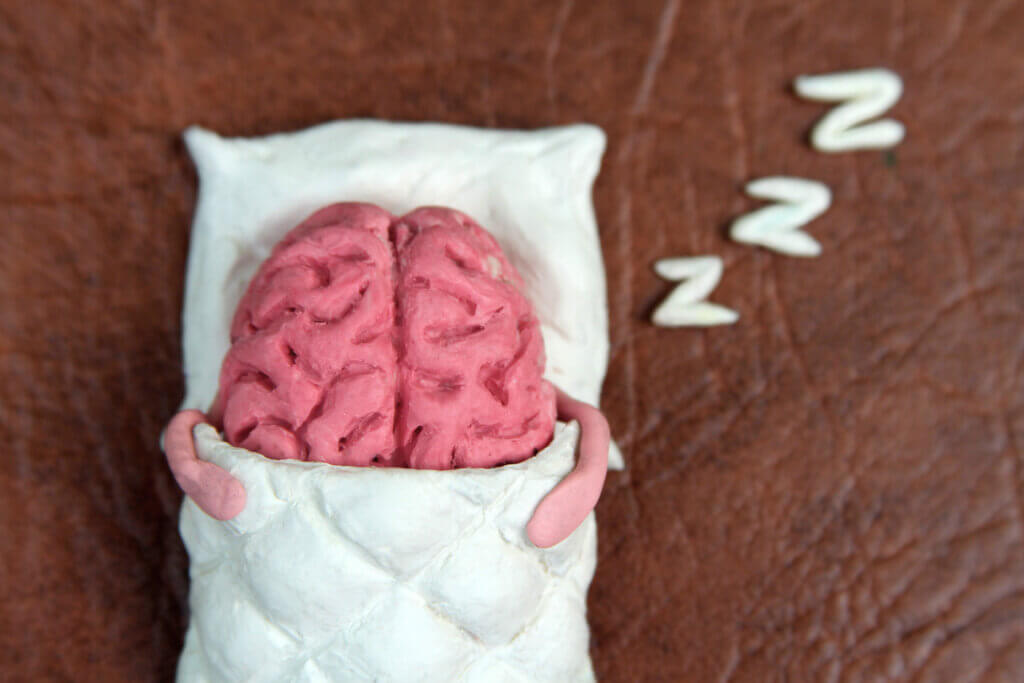As your head sinks into the pillow at night, your brain shifts into overdrive. Electrical pulses ripple through neural networks, generating rhythmic waves that course through brain tissue. Far from resting, your cells are hard at work – cleansing your mind of the toxic byproducts that accumulate all day. Consider it a beneficial type of brainwashing necessary to keep your mind in tip-top shape.
This restorative brain wave activity is key to why we need sleep, according to a new study from Washington University scientists. Their research, published in Nature, found that coordinated firing of neurons literally flushes waste from the brain. Without these cleansing pulses, toxic proteins and metabolites can build up, setting the stage for neurological disease.
“We knew that sleep is a time when the brain initiates a cleaning process to flush out waste and toxins it accumulates during wakefulness,” says senior study author Dr. Jonathan Kipnis in a media release. “But we didn’t know how that happens.”

How We Brainwash Ourselves
This discovery bridges our knowledge gap between sleep and brain health. Clearly the nightly cleaning cycle helps prevent dementia, Alzheimer’s and other disorders tied to molecular junk accumulation. Boosting the brain’s self-cleaning efficiency could allow healthier functioning on less sleep.
That’s critical given the prevalence of insomnia and limited rest. As Kipnis points out, “Not everyone has the benefit of eight hours of sleep each night, and loss of sleep has an impact on health.”
Of course, clearing the intricate neural networks in our skull is no simple feat. The process relies on cerebrospinal fluid (CSF) – the clear liquid surrounding the brain. As we slumber, CSF enters the dense tissue, gathering up metabolic waste and misfolded proteins. It then exits into the lymphatic system, which filters toxins from the fluid.
Previously it was unclear how CSF moves through such narrow spaces, let alone captures waste in transit. Lead author Dr. Li-Feng Jiang-Xie discovered the motive force – migrating brain waves. By studying sleeping mouse brains, her team witnessed electrical pulses physically propelling CSF through tissue.

Like a Pump
“These neurons are miniature pumps,” explains Jiang-Xie, a postdoctoral research associate in the Department of Pathology & Immunology. “Synchronized neural activity powers fluid flow and removal of debris from the brain.”
Essentially, the organized firing of certain neuron clusters generates waves that act as a pumping mechanism. Their rhythmic, directional pressure sucks CSF into the brain and pushes it back out once loaded with waste.
To confirm this, researchers silenced specific regions of the mouse brain, halting the firing pattern. Without these cleansing waves, CSF flow stalled, and contaminants accumulated in tissue.
Jiang-Xie notes that larger, slower brain waves move more fluid and displace more waste. The team now wants to study why different sleep stages feature varying wave patterns. This may optimize cycles for peak cleansing performance.
The scientists compare the brain’s waste removal process to washing dishes after a meal. Broad, sweeping motions first tackle large leftovers and spills. Then quicker, more precise scrubbing focuses on stuck-on material. Our neural networks seem to utilize a similar multi-stage cleaning strategy each night.

Delaying Disease
Uncovering exactly how sleep rids our brain of toxins opens new therapeutic possibilities. As Kipnis notes, “if we can enhance this cleansing process, perhaps it’s possible to sleep less and remain healthy.”
One day doctors may directly stimulate the wave activity that powers waste clearance. Those unable to get a full night’s rest could still flush their brains of hormone byproducts, metals, and aggregated proteins like amyloid beta.
Alzheimer’s, for instance, involves a buildup of amyloid plaques over years. If we could regularly wash away excess amounts, its onset may be delayed or prevented entirely. Insomnia sufferers could likewise avoid long-term impacts without needing extensive sleep.
The brain’s constant activity during rest may seem paradoxical. But our nightly house cleaning is what allows proper cognitive function upon waking. Identifying exactly how sleep flushes away the remnants of daily brain metabolism brings us one step closer to optimized neurological health.












